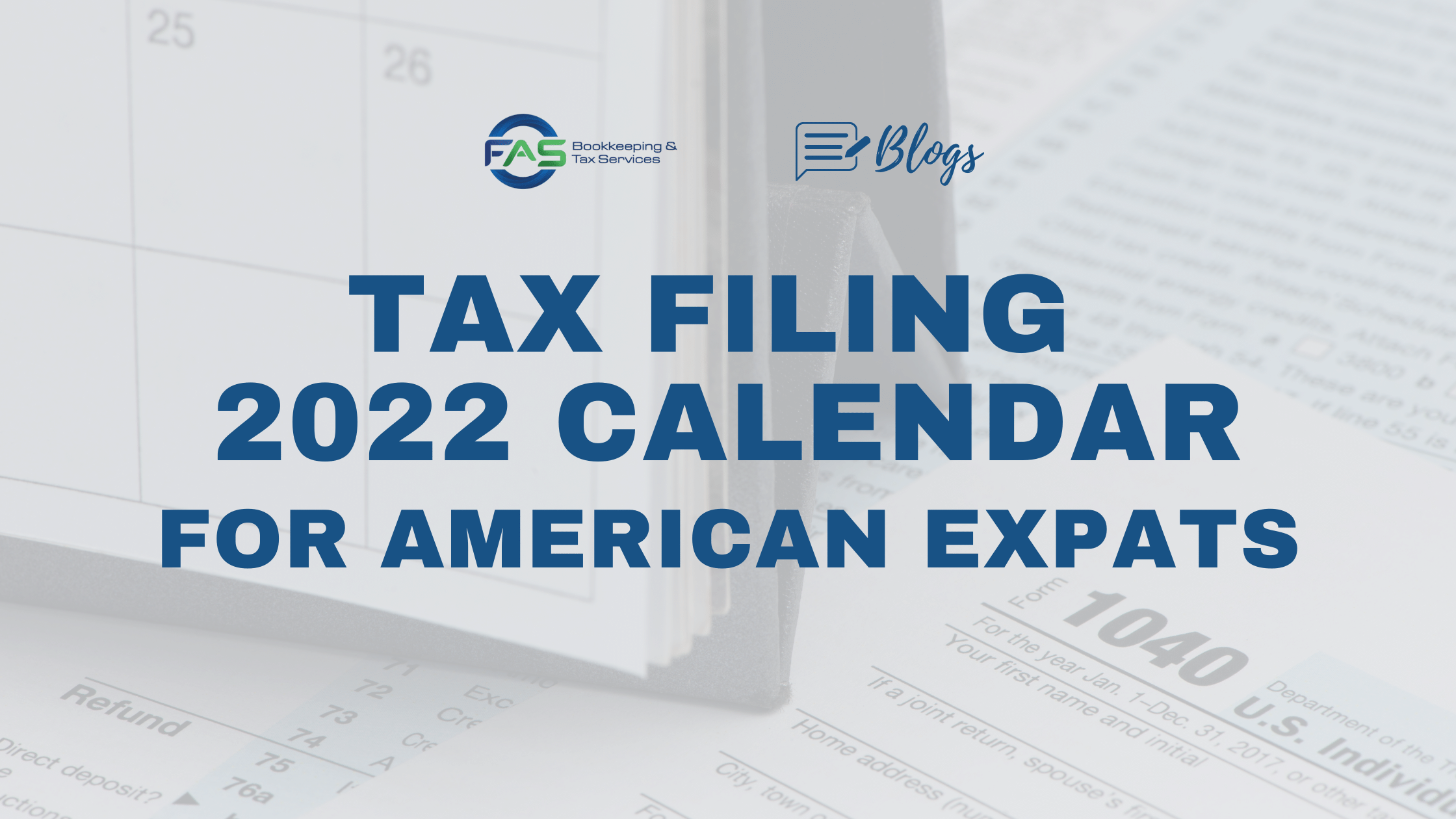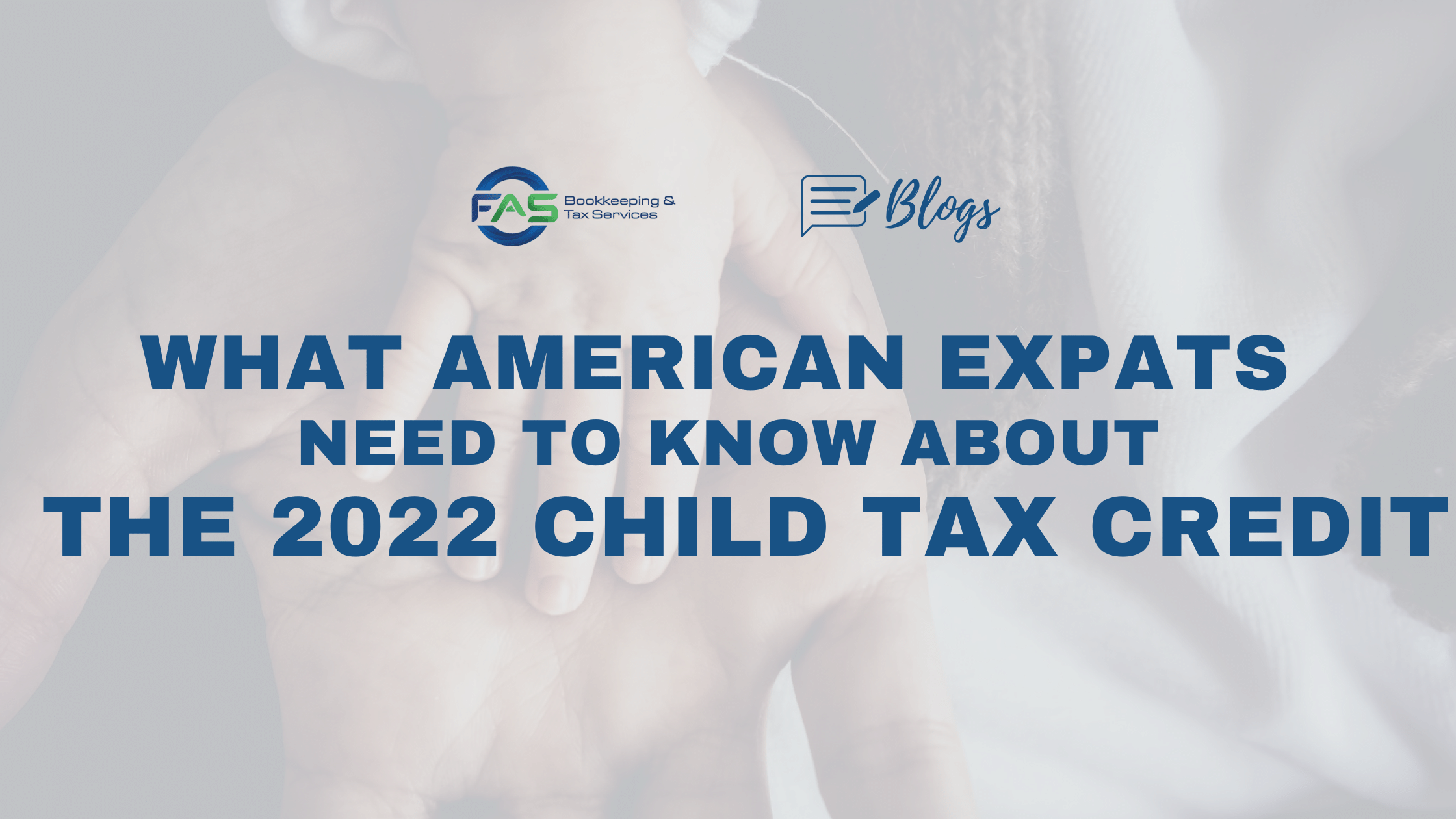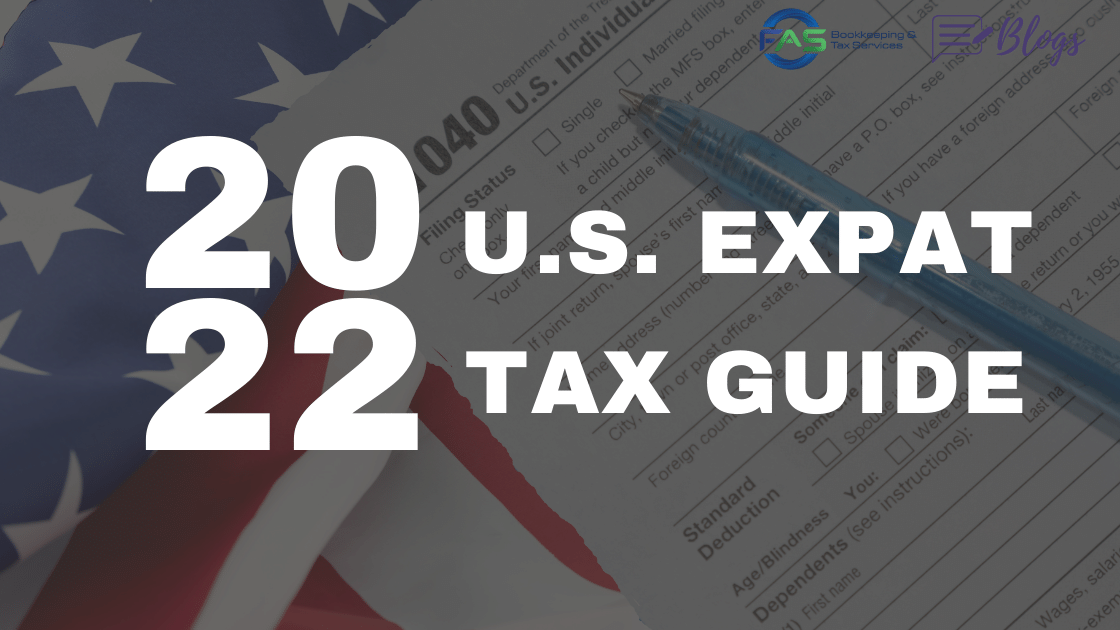The tax filing deadline for expats is near!
If you are an American citizen or a Green Card holder living outside of the country, you are still required by law to file your taxes. This is because the US is one of the very few countries that uses citizenship as the basis for taxation instead of residency. Whichever country you currently live or work in, you will have to file your US Taxes.
The US has plenty of mechanisms to identify and collect taxes from Americans outside of the US. Some of the mechanisms that they have in place are tax treaties that establish clear guidelines for taxing Americans living in another country and the FBAR reporting made through FinCEN. Both aim to curb tax evasion and financial crimes.
Americans living in the homeland are required to file and pay their taxes by April 15, but American citizens living abroad are given two additional months to settle their finances in order for them accurately report their income. Making June 15 the tax filing deadline for American citizens living abroad. If you live abroad and earn income while doing so, here are some things that you should know about reporting foreign income:
 You are required to report income earned worldwide
You are required to report income earned worldwide
The U.S. tax system is based on the idea that all Americans, regardless of where they live or where they earn their income, should pay taxes to support our country. That’s why Americans living abroad must file U.S. income tax returns and report any worldwide income they receive. Even non-U.S. citizens may need to file a U.S. return if they meet certain requirements (for example, if they own U.S.-based assets).
The good news is that some key tax benefits, such as the foreign earned income exclusion, are available only to those who file U.S. returns—and even if you aren’t eligible for them or are required to file a return anyway, it’s always worth filing because you may be able to claim deductions or credits that will reduce your tax burden!
Any income received or deductible expenses paid in foreign currency must be reported on a U.S. tax return in U.S., not foreign, dollars—as well as any tax payments made in foreign currency must be converted into U.S.
 Foreign accounts and assets must be reported
Foreign accounts and assets must be reported
Federal law requires U.S. citizens and resident aliens to report any worldwide income, including income from foreign trusts and foreign bank and securities accounts. The Foreign Account Tax Compliance Act (FATCA) was enacted in 2010 to address offshore tax evasion by U.S. persons holding accounts in foreign banks or other financial institutions located outside of the United States. FATCA requires financial institutions in other countries to report on the assets held by their U.S. clients directly to the Internal Revenue Service (IRS).
The Bank Secrecy Act (BSA) was enacted in 1970 to prevent money laundering and other financial crimes by requiring that individuals, businesses, and organizations file reports with the government about transactions over $10,000 in a single day through a financial institution including banks, stockbrokers, credit unions and others who are required to follow know-your-customer rules that help detect criminal activity such as fraud or money laundering schemes by verifying identity before accepting deposits or withdrawals (often referred to as “structuring”).
Tax Forms are important
In most cases, affected taxpayers need to file Schedule B, Interest and Ordinary Dividends, with their tax returns. Part III of Schedule B asks about the existence of foreign accounts, such as bank and securities accounts, and usually requires U.S. citizens to report the country in which each account is located.
Some taxpayers may need to file additional forms with the Treasury Department such as Form 8938, Statement of Specified Foreign Financial Assets or FinCEN Form 114 (formerly TD F 90-22.1), Report of Foreign Bank and Financial Accounts (“FBAR”).
FBAR. Taxpayers do not file the FBAR with individual, business, trust or estate tax returns. Instead, taxpayers with foreign accounts whose aggregate value exceeded $10,000 at any time during 2021 (or in 2022 for next year’s filing returns) must file a Treasury Department FinCEN Form 114 (formerly TD F 90-22.1), Report of Foreign Bank and Financial Accounts (“FBAR”).
The deadline for filing the FBAR is the same as for a federal income tax return and must be filed electronically with the Financial Crimes Enforcement Network (FinCEN) by April 18, 2022. However, FinCEN grants filers who missed the April deadline are granted an automatic extension until October 15, 2022, to file the FBAR.
Form 8938.
Generally, U.S. citizens, resident aliens, and certain nonresident aliens must report specified foreign financial assets on Form 8938, Statement of Specified Foreign Financial Assets if the aggregate value of those assets exceeds certain thresholds:
- If the total value is at or below $50,000 at the end of the tax year, there is no reporting requirement for the year, unless the total value was more than $75,000 at any time during the tax year
Know if you’re qualified for the Foreign Earned Income Exclusion
Many Americans who live and work abroad qualify for the foreign earned income exclusion when they file their tax return. This means taxpayers who qualify will not pay taxes on up to $112,000 of their wages and other foreign earned income they received in 2022.
The foreign earned income exclusion is a tax law that lets you exclude a portion of your compensation from federal taxes if you work abroad. The exclusion applies only to income you earn through work performed in a foreign country. It doesn’t apply to income from investments or other sources—only employment-related compensation.
Take advantage of Credits and Deductions
Taxpayers may be able to take either a credit or a deduction for income taxes paid to a foreign country. This benefit reduces the taxes these taxpayers pay in situations where both the U.S. and another country tax the same income. However, you cannot claim the additional child tax credit if you file Form 2555, Foreign Earned Income, or Form 2555-EZ, Foreign Earned Income Exclusion.
Get professional tax help
If you’re a taxpayer or resident alien living abroad that needs help with tax filing issues, IRS notices, and tax bills, or have questions about foreign earned income and offshore financial assets in a bank or brokerage account, you probably need the help of a professional that can prepare and file your taxes for you so you can minimize the risk of a mistake in your returns. Remember, if the IRS sees a mistake in your return, whether it’s an honest one or not, they have the power to audit you. So get the help of an Enrolled Agent to minimize your risks and to make sure that you are fully compliant with the tax laws.
Need an Enrolled Agent? Get in touch with us today!
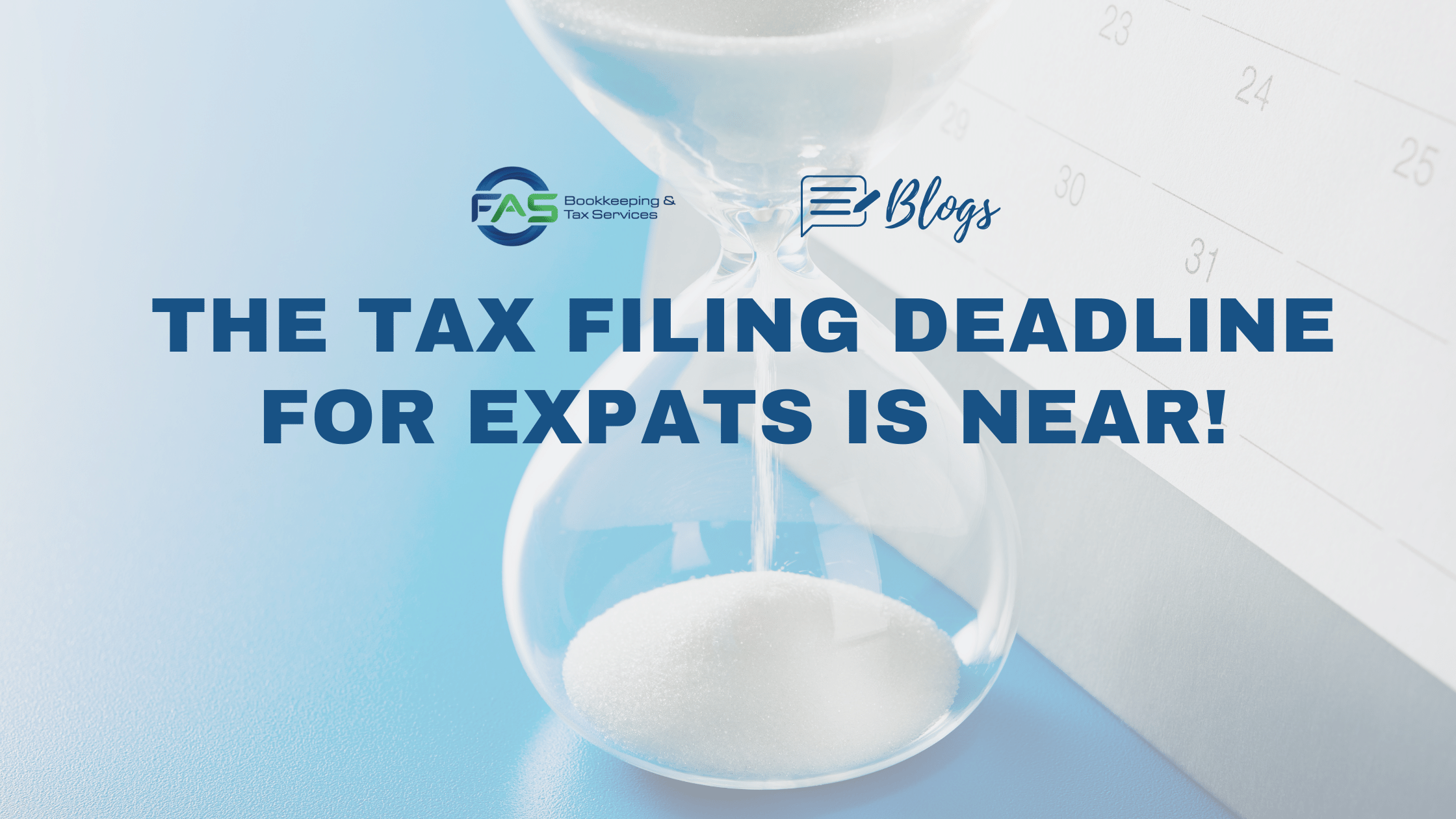

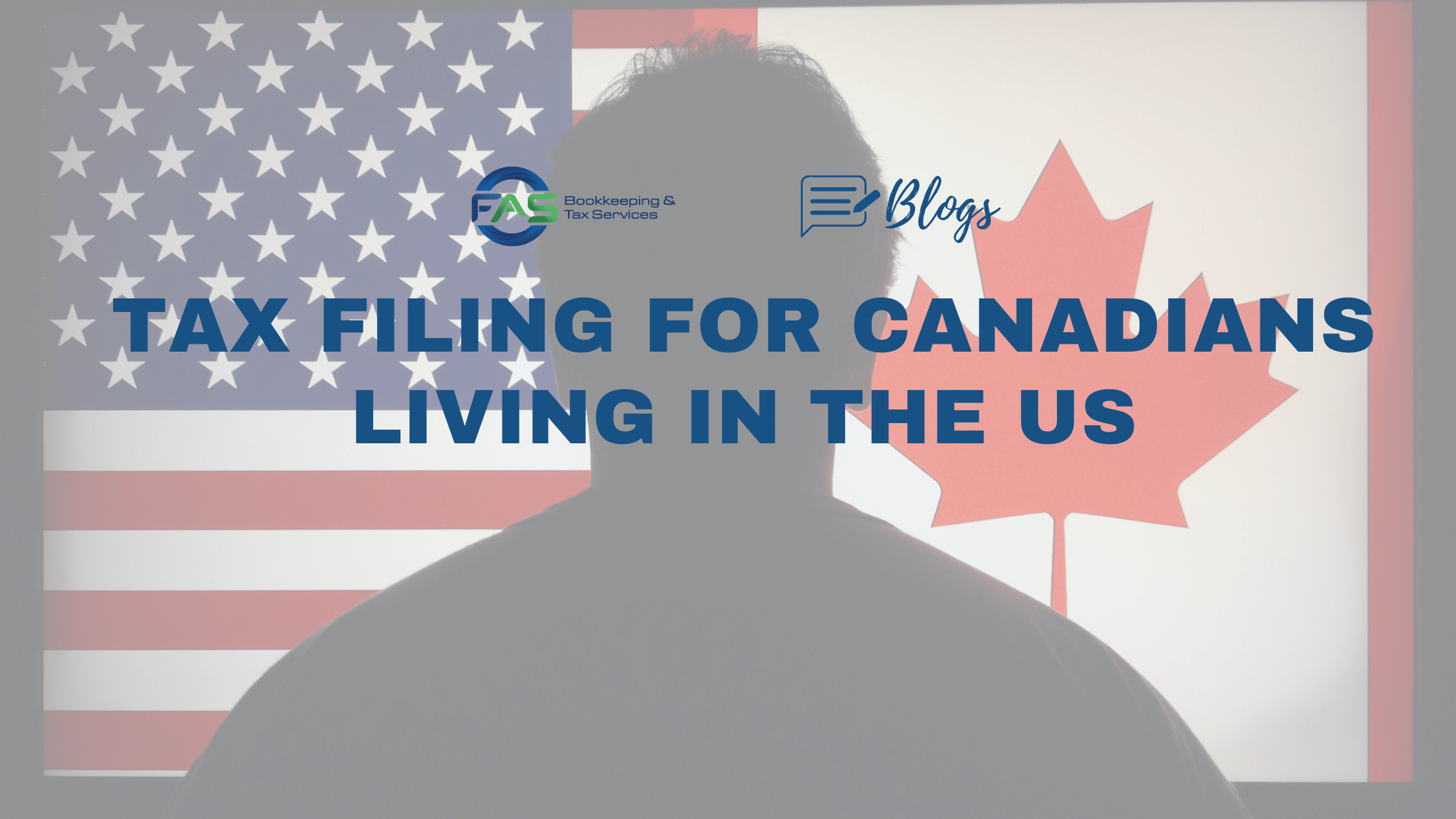
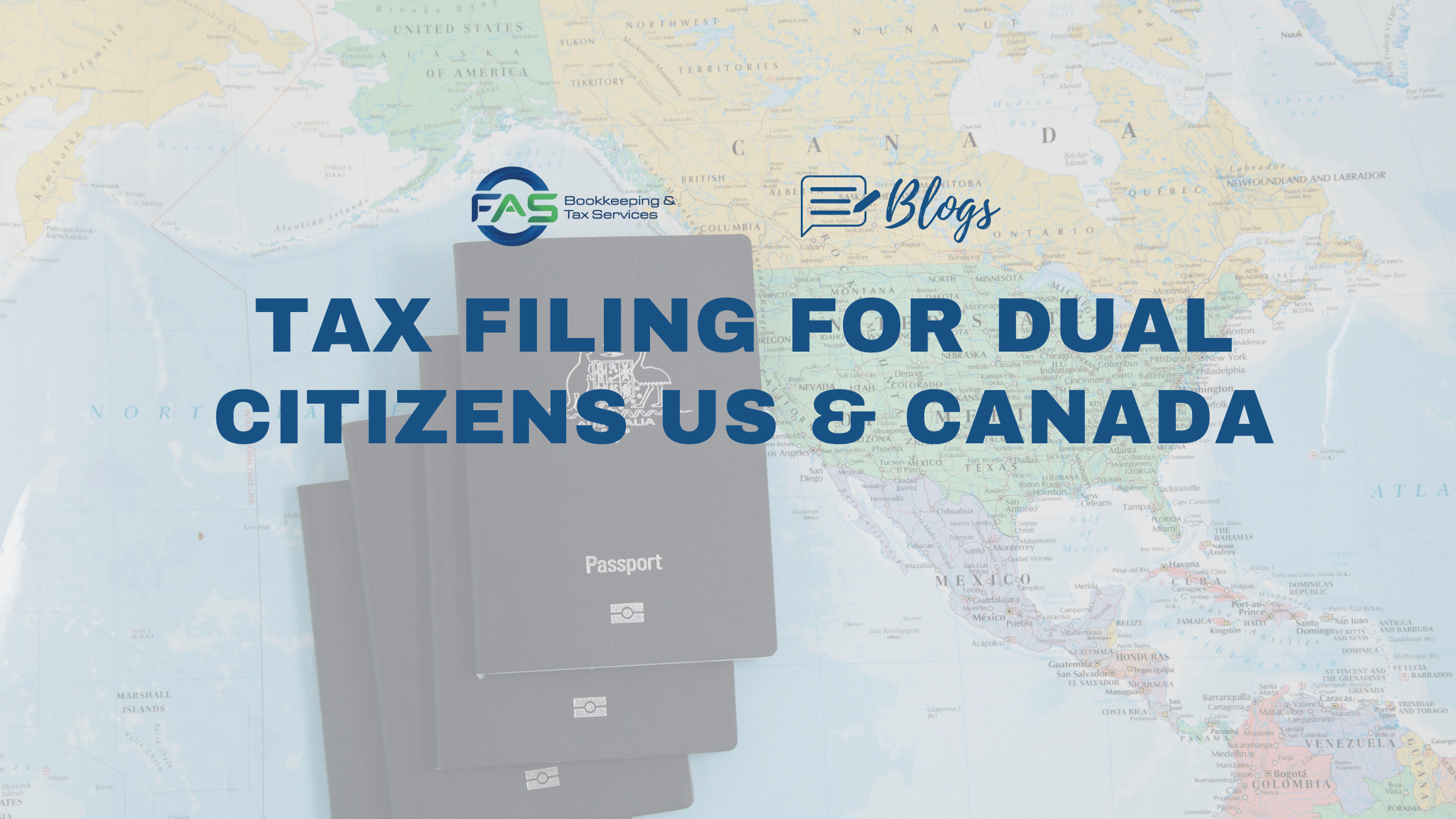
 Social Security taxes and benefits for dual citizens of US and Canada
Social Security taxes and benefits for dual citizens of US and Canada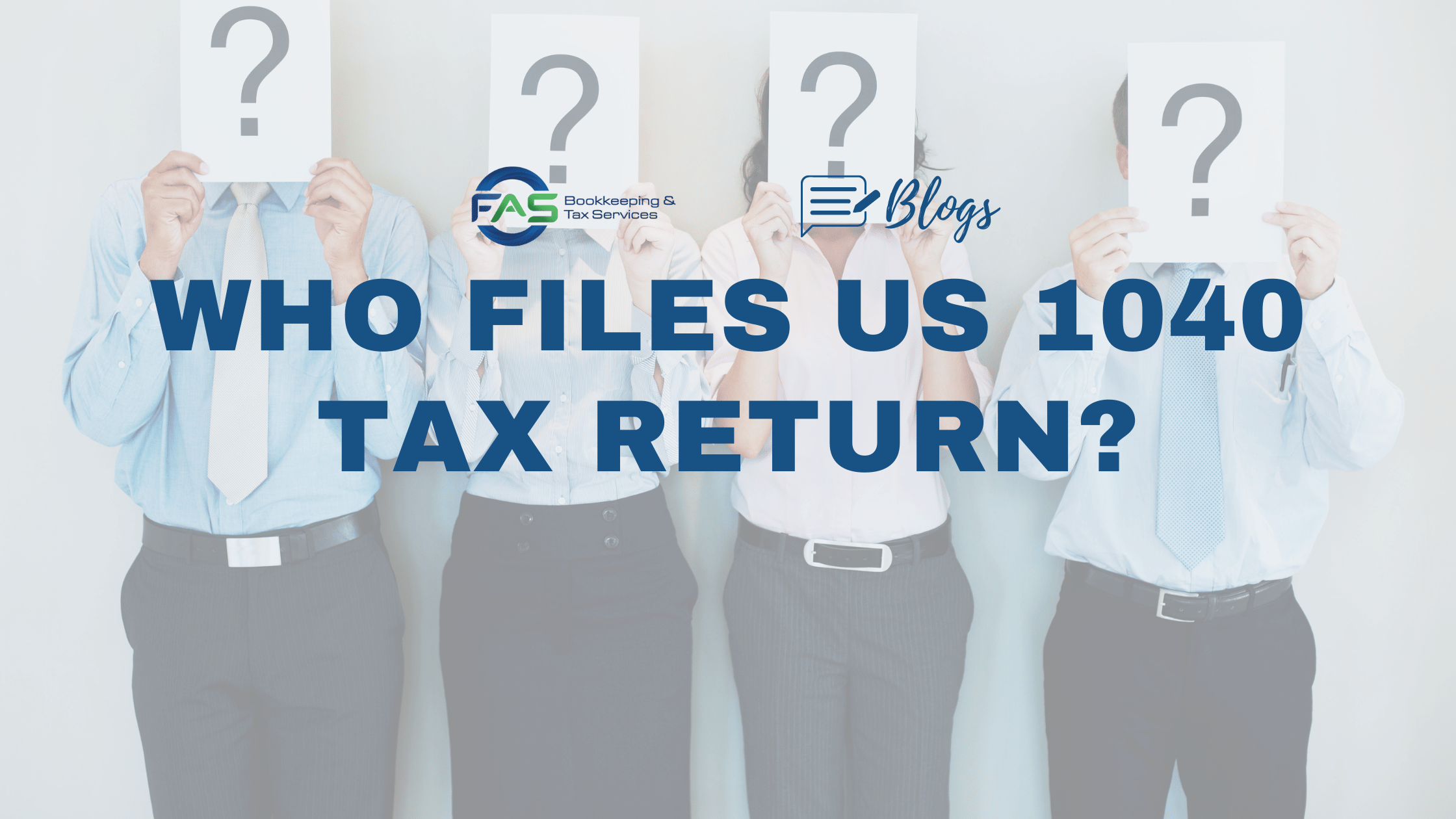
 Who is required to file US 1040 tax return?
Who is required to file US 1040 tax return? Rental of US Property
Rental of US Property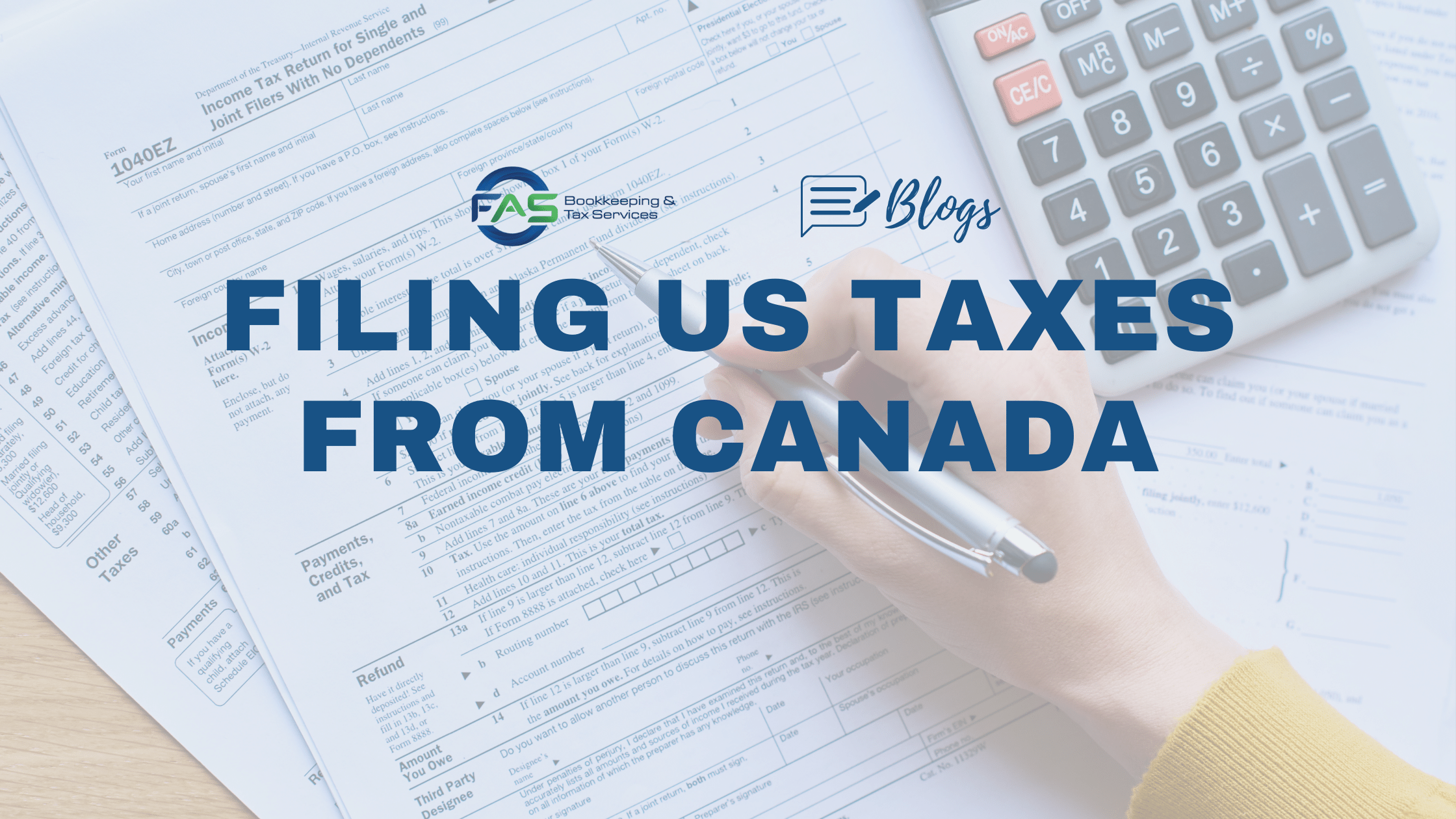
 A certified financial planner and financial management adviser with Investors Group in London, Ontario, notes that “generally, as a U.S. citizen living and working in Canada, you are taxed for money earned in Canada.”
A certified financial planner and financial management adviser with Investors Group in London, Ontario, notes that “generally, as a U.S. citizen living and working in Canada, you are taxed for money earned in Canada.” Since the taxes in the US are based on citizenship and not on residency, one can’t help but think of the possibility of double taxation. Luckily, the relationship between the US and Canada goes way back. This enabled them to create an amicable tax treaty between the two countries. The
Since the taxes in the US are based on citizenship and not on residency, one can’t help but think of the possibility of double taxation. Luckily, the relationship between the US and Canada goes way back. This enabled them to create an amicable tax treaty between the two countries. The 
 FATCA reciprocal reporting – A two-way street
FATCA reciprocal reporting – A two-way street Still got time to be compliant
Still got time to be compliant